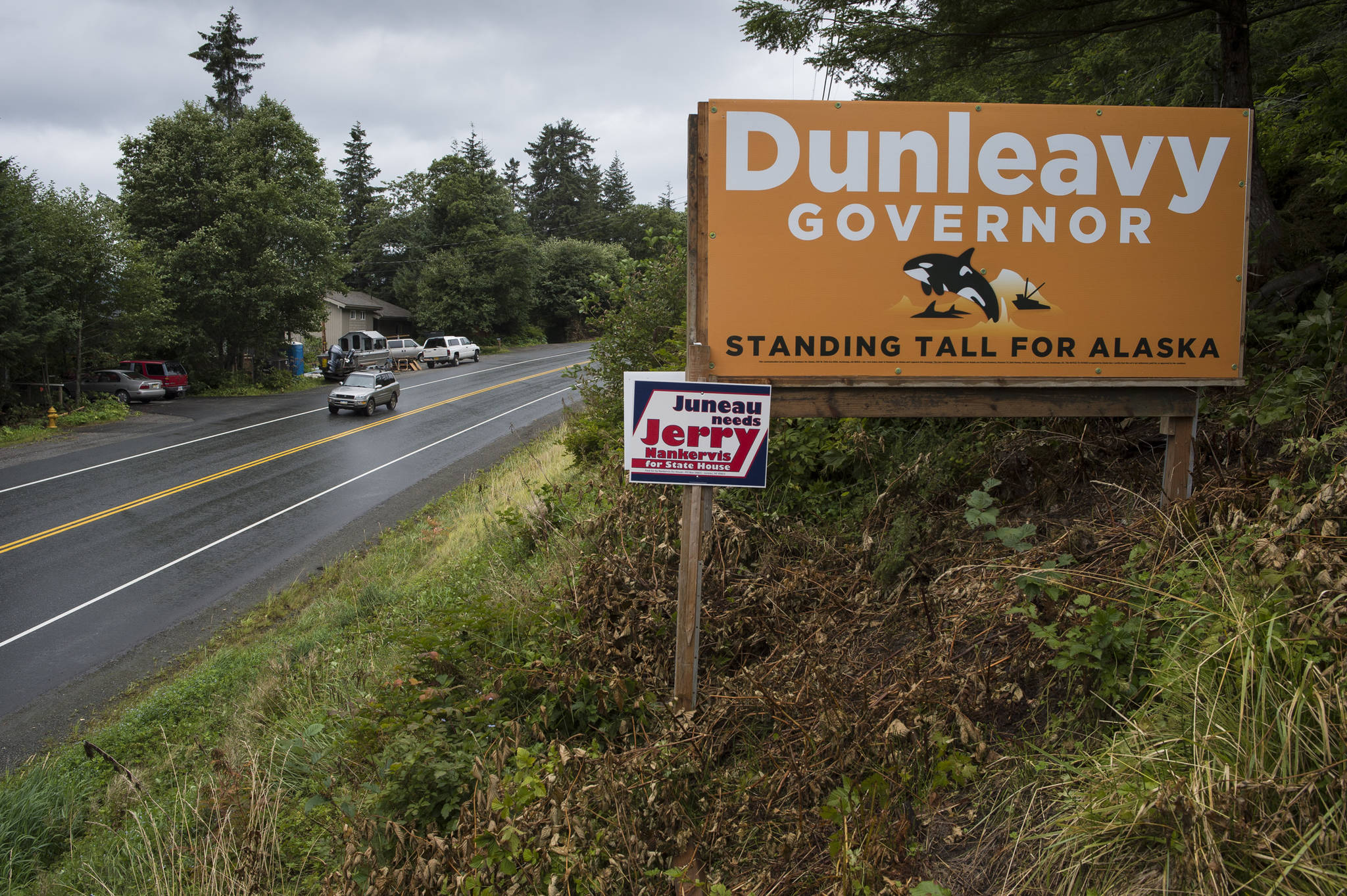Correction: The first version of this story misspelled the name of state attorney Michael Schechter.
The Alaska Department of Transportation and the state chapter of the American Civil Liberties Union appear to have reached partial agreement on the issue of campaign signs along state roads.
The ACLU, in conjunction with a political group supporting the election of Mike Dunleavy as governor, has sued the state to partially overturn a 1998 voter-approved ban on billboards. This summer, the state has removed some political signs that violate that ban, and the ACLU claims the state is enforcing the law unequally by removing political signs but not commercial signs.
Under state law, any sign visible from a state road and within 660 feet of that road is illegal unless attached to a building.
In court filings, the state says it will ignore small signs that violate the law, as long as those signs are on private property. To date, the state said, it has not removed any signs from private property, only from the public right of way.
“The state agrees … that while this case is pending, it must allow small, temporary political signs to be posted on private property,” state attorneys wrote.
The ACLU has requested an immediate injunction to keep the state from removing political signs, and the ACLU is pursues a broader attack on the state law. On Thursday, attorneys from both the state and ACLU presented oral arguments in front of Anchorage Superior Court Judge Herman Walker Jr.
Walker took the case under advisement and did not immediately issue a ruling.
In court filings, state attorney Michael Schechter requested a “narrow preliminary injunction limited to allowing the specific form of political speech addressed by the Plaintiffs: small, temporary political campaign signs no larger than 4’ x 8’ displayed on private property by owners or occupants of the property who have not been paid to display the signs.”
If Walker rejects that request and issues a broader injunction against the law, it might affect the ability of the state to ban commercial billboards.
Attorney Peter Scully, representing the ACLU, said that isn’t the goal of the organization.
“We are not advocating for paid advertising; we’re not advocating for billboards,” Scully.
Scully, of Holland & Knight, added that the ACLU is not entirely opposed to a narrow injunction because it believes it has a strong case and will eventually overturn the anti-billboard law in part or wholly.
“We think the court can get there, but it doesn’t need to get all the way there,” he said of the injunction.
While it might agree with the state on the matter of signs on private property, the ACLU is continuing to push for a broader injunction, one that allows political signs within state highways’ rights of way.
Schechter said the state opposes that.
“The problem is clear … we have a flood of political campaign signs in the right of way,” he said to Walker, referencing signs that block the view of drivers on state roads.
Walker asked Schechter whether the state’s actions could have a “chilling effect” on the actions of people who are uncertain of the law, then referenced the example of plaintiff Eric Siebels, whom the ACLU and the Dunleavy group are representing.
Schechter referenced a picture of a sign erected by Siebels.
“Considering he’s got a giant sign up there, I would say no,” Schechter said.
• Contact reporter James Brooks at jbrooks@juneauempire.com or 523-2258.

